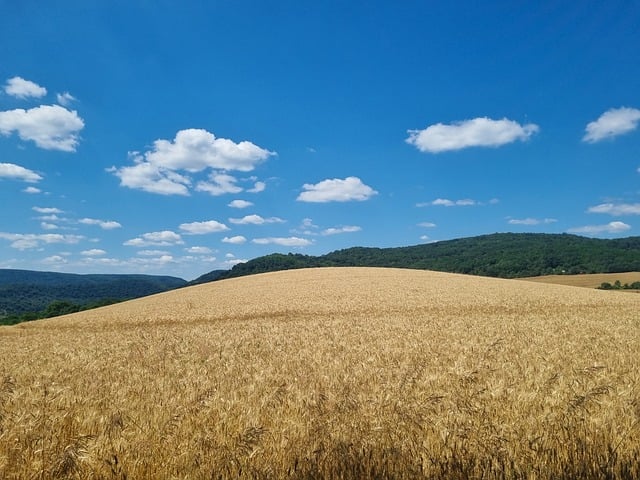Introduction
One of the foundational pillars of Islam is Salah (prayer) — a spiritual and physical act of worship directly commanded by Allah in the Holy Qur’an. Although Muslims may differ slightly in how they perform Salah, as long as no act of shirk is involved, the core obligation remains grounded in the Book of Allah. While unity in prayer is encouraged, salvation is not tied to one specific method. Moreover, the timings of the five daily prayers — and even the Friday congregational prayer (Jummah) — are clearly outlined in the Qur’an itself.
Interestingly, some groups — such as certain followers of Ahl-e-Hadith — claim that the Qur’an does not specify prayer times, implying a reliance solely on Hadith. While Hadith certainly plays a role in clarifying procedural details, the Qur’an undeniably outlines all five daily prayer times. In the following sections, we’ll explore those verses — clearly, contextually, and directly.
The Five Daily Prayers in the Qur’an
1. Fajr – The Dawn Prayer

📖 Quranic Verse:
“…before the dawn prayer…”
(Surah An-Nur 24:58)
⏰ Timing Clarity:
The above verses unmistakably refer to Fajr, the early morning prayer before sunrise, when the recitation of the Qur’an is especially significant and witnessed by angels.
2. Dhuhr – The Midday Prayer

📖 Quranic Verse:
“Observe the prayer from the decline of the sun until the darkness of the night and the dawn prayer, for certainly the dawn prayer is witnessed ˹by angels˺.”
(Surah Al-Isra 17:78)
“…when you put aside your garments [for rest] at noon…”
(Surah An-Nur 24:58)
⏰ Timing Clarity:
When the sun begins its descent from the zenith, it’s Dhuhr time. This is reinforced by the mention of midday rest, a common practice in hot climates and traditionally linked with the Dhuhr prayer.
🧠 Root Word and Its Linguistic Meaning:
In fact, Dhuhr comes from the root ظ-ه-ر (ẓā-hā-rā / ظ هـ ر) meaning “to decline,” referring to the sun’s descent after reaching its highest point (zenith).
3. Asr – The Afternoon Prayer

📖 Quranic Verse:
“And establish prayer at the two ends of the day…”
(Surah Hud 11:114)
“And glorify the praises of your Lord before the setting of the sun…”
(Surah Qaf 50:39)
⏰ Timing Clarity:
Although, “Two ends of the day” include the afternoon and the early morning. Specifically, “before the setting of the sun” is a direct allusion to Asr, which falls just before sunset.
4. Maghrib – The Sunset Prayer

📖 Quranic Verse:
“…and at the approach of the night…”
(Surah Hud 11:114)
“…until the darkness of the night…”
(Surah Al-Isra 17:78)
⏰ Timing Clarity:
The Maghrib prayer occurs just after the sun sets, during the initial moments of twilight. The Qur’an’s use of “approach of the night” directly refers to this period.
5. Isha – The Night Prayer

📖 Quranic Verse:
“…after the night prayer…”
(Surah An-Nur 24:58)
“…until the darkness of the night…”
(Surah Al-Isra 17:78)
⏰ Timing Clarity:
The “darkness of the night” sets in after twilight ends — the time designated for Isha. The Qur’an explicitly mentions the “night prayer” here, leaving no ambiguity.
Bonus: Jummah – The Friday Congregational Prayer
📖 Quranic Verse:
“O you who believe! When the call is proclaimed for prayer on Friday, hasten to the remembrance of Allah and leave off trade. That is better for you, if you only knew.”
(Surah Al-Jumu’ah 62:9)
📌 Timing:
This is the weekly congregational prayer (Jummah) held in place of Dhuhr on Fridays. It is clearly stated in the Qur’an, commanding believers to pause business activities and attend the Friday prayer.
Addressing the Claim: “Prayer Times Are Not in the Qur’an”
Some individuals, often associated with certain Ahl-e-Hadith circles — argue that the Qur’an does not clearly define prayer times, and that only Hadith provides this information.
🛑 This claim is misleading.
✅ As we’ve seen, the Qur’an does describe the prayer times in natural, observable ways — sunrise, decline of the sun, before sunset, darkness of night, etc. These descriptions match perfectly with the five daily prayers Muslims offer today.
👉 The Hadith complements this by offering precise clock-based intervals and physical actions, but the Qur’an remains the foundational source, offering clear time markers for those who reflect.
Conclusion
To conclude, the Qur’an is a complete Book, described by Allah as “a guidance for mankind” (2:185). It does not leave out essential matters such as the times of daily prayers. Those who claim otherwise simply have not read carefully or reflectively enough.
Therefore, we should avoid unnecessary confusion where the Qur’an offers clarity. Prayer times are indeed mentioned in the Qur’an, in ways that are poetic, divine, and aligned with the natural order of the day and night.
Prayer holds immense power in Islam, serving as both a duty and a source of divine connection. Even the prophets sought help through prayer. For instance, this story of Prophet Musa’s heartfelt supplication reveals how sincere prayer can reshape destiny.
Last modified: 14/06/2025


This breakdown of the prayer times directly from the Qur’an is so refreshing. It’s rare to see such clarity. Bookmarked!